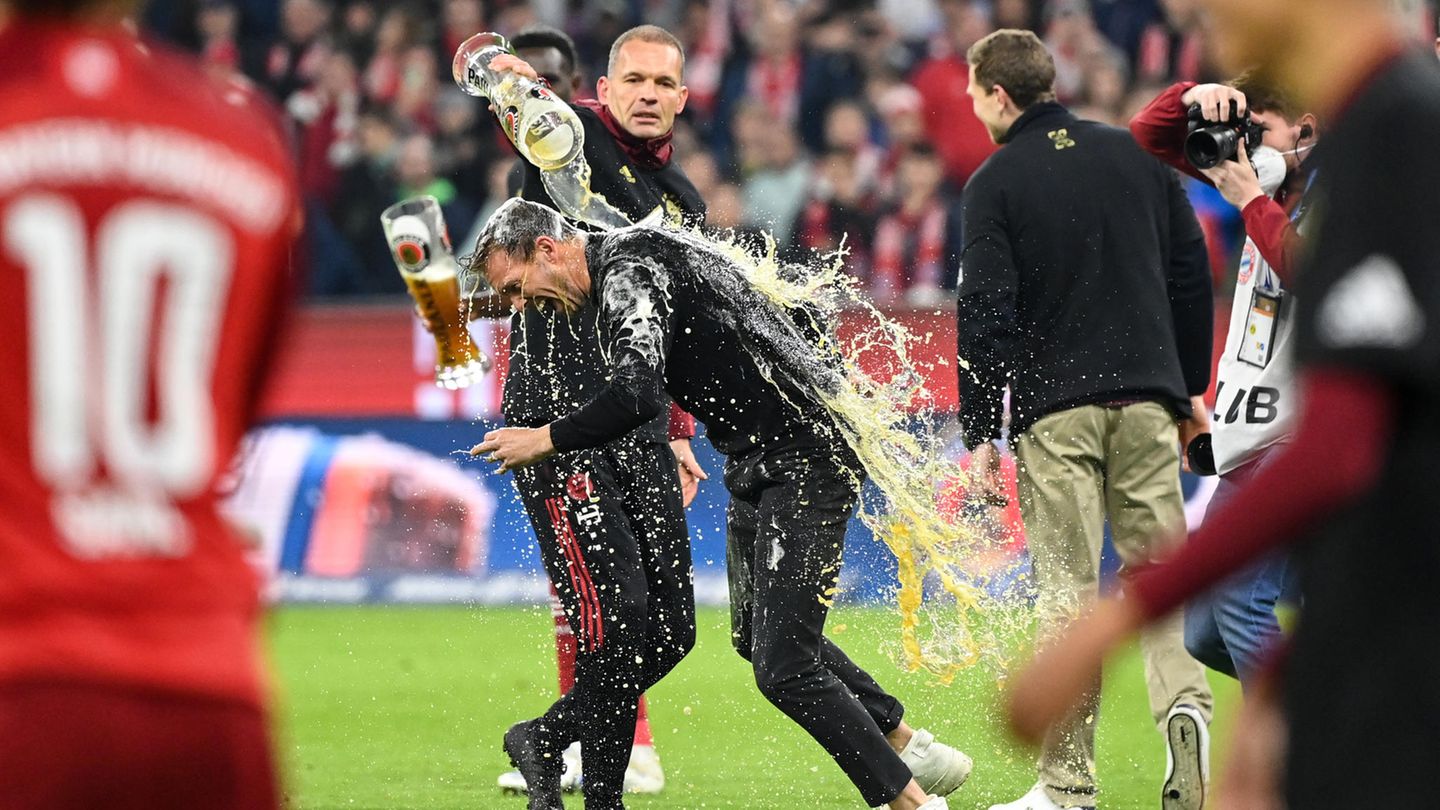opinion
Bayern Munich has no place in the Bundesliga anymore. The permanent champion blocked the top, as well as the sporting development, especially his own. If you want to keep 50+1 but have excitement, you have to let the club move to Europe.
FC Bayern Munich has become German champion for the tenth time in a row, congratulations once again from here. A German football team has already managed this feat: the BFC Dynamo from Berlin in the GDR Oberliga. The team dominated from 1979 to 1988, which was not only due to the country’s sports promotion system, but also to its proximity to state security – the BFC was about as popular as the domestic secret service. FC Bayern certainly didn’t need outside “help” for their well-deserved success, and that’s why it’s becoming increasingly clear that FC Bayern Munich has no place in the Bundesliga anymore.
Bayern has to get out of the Bundesliga
Even if the club and many football traditionalists shudder, it doesn’t help. The dominant permanent champion has to get out of the upper house and go somewhere where the other big money is, for example in the Super League. Whatever form it takes, even if it were just an inflated Champions League. The golden cow of professional football is far from milked out, even if many fans in oversaturated Europe might like it that way. After all, a club like Bayern Munich is where it is because it has always been on the move, has broken new ground and was often ahead of its time. It is not for nothing that Oliver Kahn, whose “More, keep going” has become proverbial, sits on the board of directors of the soccer company.
It is not surprising that he is faced with the question of what he can still achieve in the tightly tied Bundesliga home market, while the league is faced with the question of how to move with this monster in front of its nose. Because the club not only blocks the top of the table. He can switch and act as he pleases on the transfer market. Even if the competition snatches away attractive posts from time to time, like Karim Adeyemi or Erling Haarland recently, it’s still FCB who plunder their pursuers at will. Keywords: Julian Nagelsmann, Dayot Upamecano, Marcel Sabitzer. So should it always stay like this? Presumably, even those responsible for the club should already be bored. It’s therefore long overdue for Bayern Munich to “take the next step,” as one of those well-worn footballer phrases puts it.
Bayern no longer a top 5 club
And this step can only be Europe. Only there can the club compete again at eye level with its own, or with those the club considers to be. How the unchallenging Bundesliga is slowing down Bayern can be seen in the recent Champions League performance. Until a few years ago, the team was still one of the top 5 teams, but recently it was not uncommon for them to end in the quarterfinals. Financially, the FCB would be a rather small number compared to the Manchesters and PSGs if it were to “promote” to the top European league, but it is well managed, which should make up for the missing millions. And even if not: The expected self-marketing alone will be more than lucrative.
And what about the Bundesliga without Bayern? Of course, she would be missing an attraction. But if the highlight of the football year for smaller clubs like Cologne or Stuttgart is to lose twice not too badly against the permanent champion, that’s also a pretty dull idea of football. But how should that ever change? FCB recently turned over almost 200 million euros more than number two, Borussia Dortmund. Is it realistic that BVB in particular or the league in general will ever catch up again? Of course there are ideas how the Bundesliga could become “fairer” again. Unfortunately, all the proposals ultimately boil down to putting more financial pressure on the big teams in order to better support the smaller ones.
But the simple slogan “Bayern and BVB must become poorer so that the rest can live” levels the level down at most. And it’s not just about money, as Hertha BSC had to learn painfully. On the other hand, Eintracht Frankfurt or currently SC Freiburg show how clubs can be successfully managed with cleverness and passion. Everything comes together at Bayern, which is why they still have at least 20 years ahead in terms of know-how, reputation and mentality. Things that neither sheikhs nor beverage manufacturers can buy.
The German football orthodoxy
The rules of US professional sports, which are often cited as a positive example, are only moderately good for more competition. Although there are upper salary limits and capped club budgets, top players in baseball or basketball still achieve exorbitant incomes that German players can only dream of. And in American football, the New England Patriots have been in the finals five times since 2012. Their former quarterback Tom Brady even six times. So much for variety. In addition, there would of course still be the possibility of repealing the 50+1 rule – which is unthinkable in German football orthodoxy for the time being.
But maybe things like Super League, American football and orthodoxy aren’t even a contradiction in terms. Bayern (and maybe Dortmund too) are leaving the league and delighting fans in the top spheres with top-class sport. In the Bundesliga, after a financial reform, there is again real competition in well-filled stadiums with standing room and fan culture, the actual and final trademark of the league. It’s a bit like in the USA, where college football is also “second-class”, but for many fans it is much more attractive than the fully marketed event sport in the NFL. In any case, it can’t get any more boring.
Source: Stern
I have been working in the news industry for over 6 years, first as a reporter and now as an editor. I have covered politics extensively, and my work has appeared in major newspapers and online news outlets around the world. In addition to my writing, I also contribute regularly to 24 Hours World.




